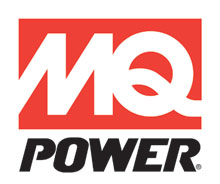How Does a Generator Work?
- By David Seip
- May 18, 2018
Whether you’re installing a generator for backup power, preparing for a disaster, or getting ready to work or play away from easy-to-reach outlets and established powerlines, generators work essentially the same way and carry similar challenges. It’s easy to take electricity for granted. We don’t realize the challenges that can arise from needing power where there’s no infrastructure, or how difficult it can be to recover power when infrastructure is damaged. A generators can help fill the gap during powerless times or when you are far from a power source.
Wanco Inverter Generator – WI3100 has 2800 Watts of power and is one of our newest and quietest generators.
How a generator works to create energy:
Burning fuel produces mechanical energy that runs an engine. The alternator converts that mechanical energy to electrical energy, and provides specific power output that is captured to run electrical devices. If you're familiar with how a car runs, you may recognize some of the terminolgy and processes outlined below. Here are some of the details of this energy transfer process:
Fuel gives your generator its source of energy. If you’re buying a smaller generator for use in an emergency or while away from regular power infrastructures, your generator will likely be gasoline-powered. The typical fuel tank contained in a generator is only large enough to provide a few hours of power if used continuously. Keep an extra gasoline tank nearby for uninterrupted power.
Larger, generators intended for long-term use (often called prime-power generators) may use a diesel or propane fuel source. To ensure continuous operation, they may also require an external fuel tank to be installed nearby. Be sure to understand your generator's fuel needs before purchasing. It is also important to perform regular maintenance to ensure a long lifespan for your generator, and efficient use of your fuel.
The generator's engine burns the fuel to create mechanical energy. Like any other engine it requires oil and coolant to operate. Both must be reguarly changed, following the manufactorers recommendations. Smaller engines will often be air-cooled, while larger engines will have a liquid cooled radiator similar to a vehicle's and use coolant such as anti-freeze.
One of the most asked questions we get is 'what size of generator should I buy?' The size of your generator's engine affects how much electricity your generator will be able to create. If you aren’t certain how big a generator you should buy, we have web tools to help you choose, including the Wattage Calculator.
As the engine runs, it transmits the mechanical energy to the alternator, just as it does in your car or truck. The alternator has several components. A rotor inside the alternator spins to create a rotating magnetic field in the stator. The stator doesn’t move, is made of an iron core wrapped in metal coils, and conducts electricity. Inside the alternator casing, the mechanical energy is used to create electricity as the rotor spins.
The electricity is controlled through a voltage regulator, which helps to make sure that when you draw electricity from the generator, the generator itself still has enough power to continue operating. When a generator is turned on, its first energy is devoted to running itself, until it builds up enough energy to have output voltage. Once that energy is tapped into, the regulator will prompt the alternator to alter its behavior to create more current, until it’s reached its highest possible capacity.
The voltage regulator helps the generator to produce 115-volt, single phase, 60 cycle power – the same that you will typically plug into at home. Some generators will also produce higher voltage, 3-phase power as well (used for many commercial power applications).
The Voltmaster Portable 3-Phase Generator –XTP50EV480 is one example of a commercial grade, three phase generator , that works well for businesses in need of backup power solutions
Like any engine, your generator’s engine has an exhaust system that releases gases created by the burning of fuel into the air. It is very important to ensure your generator will not release exhaust into a confined space or towards any buildings. Your municipality may have regulations regarding the installation of permanent generators for this purpose. If you are using a small generator after an emergency or while camping, make sure you won’t be the unlucky recipient of the fumes!
This is just a simple overview of how a generator works. If your company needs more information on what specific backup power supply would work best, please visit our How to Choose a Generator page. Or you can contact one of our generator experts at 888-264-2189.









